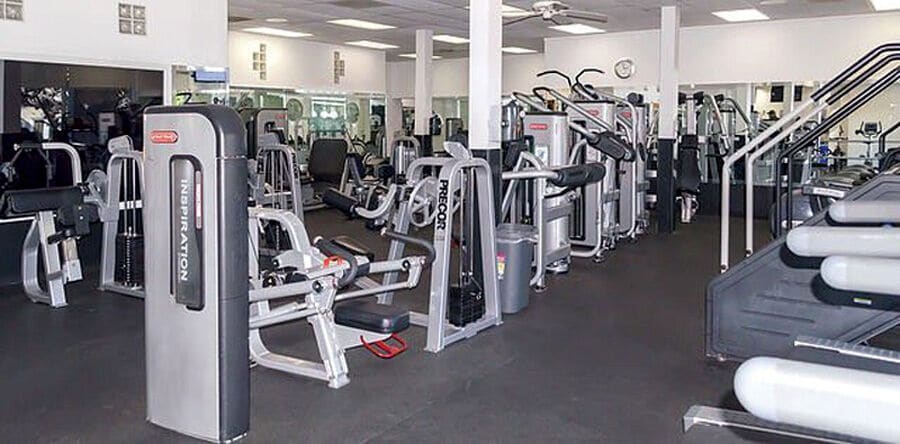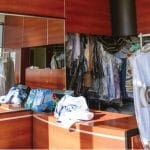Never in the 33 years since Levon Akopyan opened his shoe repair shop in Malibu has business been so bad—not during the recession in ‘08, not during the fires in ‘18, he said.
Akopyan, like most business owners in Malibu, is adapting to the economic shutdown. And, like many small business owners, for Akopyan the downturn isn’t just about money—not seeing customers, some of whom he’s known since they were children, weighs heavy, as well.
Most Malibu businesses have reported around a 70-75 percent drop in revenue, according to Malibu’s assistant city manager, Lisa Soghor. This number, while not as catastrophic as when the pandemic first hit, is particularly troubling because Malibu’s high season is the summertime, unlike most cities that see sales tax spike most during the holidays.
Some businesses are suffering more than others. Diamond’s Gym, for example, remains closed. Diamond Russ, the gym’s owner, said he is there constantly anyway, sanitizing his equipment from top to bottom so he can be ready as soon as the governor gives the order to reopen.
Diamond (who prefers to use just his first name) has owned the gym for seven years. Before that, he was a gym regular. When the previous owner reached out to him to see if he would like to buy the place, he said, “hell yeah.”
On a normal, non-pandemic day, Diamond is at the gym by 5 a.m., making sure everything is in order for a 5:30 a.m. opening, greeting friendly faces and directing employees. “It’s not a hard [job], but it’s a labor of love,” Diamond said.
Diamond has applied for a loan, but has not heard anything yet. He insisted he would never allow the gym to be shuttered.
“No. 1, it’s my dream, and No. 2, it’s a community gym so I wouldn’t want to let down the community,” he said. He misses his clients, who have been reaching out saying how badly they want to return. Many are older and at higher risk from the virus. Diamond himself has had two heart attacks, which puts him, in his words, “at the top of the list” [to experience severe coronavirus symptoms].
But Diamond has been through a lot in his life. “I don’t know how to do anything else but fight. I can’t be afraid,” he said. “It’s all in God’s hands now. Trust the man upstairs and just keep it moving.”
Mina Mallari’s mom bought the original Colony Cleaners in 1989, when Mina was 12. Though she lived in Calabasas, Mallari, the daughter of Korean immigrants, essentially grew up in Malibu, spending summers and after school hours working at her mom’s business out by the sea. Now an adult, Mina took over her mother’s place 12 years ago.
Since taking over, she’s gotten used to the rhythm of wildfires, which can be predicted. But the pandemic was entirely unexpected.
“You can’t plan ahead for it,” which makes Mallari hesitant to take loans.
Though Mallari never had to close because her industry is considered essential, she said her business dropped 95 percent in the first few months of the pandemic. She was making just enough to pay her employees, nothing more.
Now, Mallari is still down about 60 percent from her usual revenue. After all, she reasoned, nobody is spending time in offices or attending fancy events right now, so she has few nice office clothes or cashmere sweaters to clean.
This also means she is not getting to see some of her regular faces—literally. Either customers are not stopping by, or they are but Mallari often doesn’t recognize them behind their masks. Still, she said people have been nothing but polite, cordial and calm, which makes it a pleasure to work during this tough time.
A few storefronts down from Colony Cleaners in the Malibu Village, Akopyan mans his shop. He remembers seeing Mallari grow up. Like her, his trade was passed down through his family, who hail from Eastern Europe. His grandfather was a shoemaker, his father a shoe designer. Akopyan started learning the craft when he was in high school in East LA. He opened a shop in the Malibu Village Shopping Center when he was 22.
Though his business has now reopened, he was initially forced to close, left off the essential businesses list.
Akopyan received a small amount of money from the federal Paycheck Protection Program, which helped him pay rent. Jamestown, the company that manages Malibu Village, has also been working with him to arrange rent deferrals and brainstorm long-term solutions. “There’s been no talk other than, ‘how can we help you and support you?’” Akopyan’s wife Taleen said.
Luckily, European Shoe Repair has a thriving online business; people send Akopyan purses and shoes from all over the country.
“Had we not had that [online business],” Taleen said, “we probably wouldn’t have survived.”



